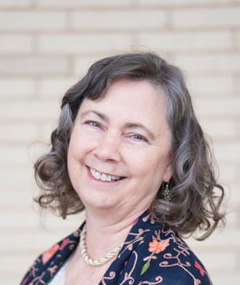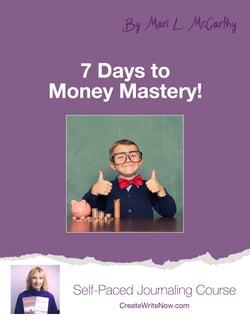We know that the stories we are compelled to write are the ones that haunt us, that won’t let go. However, writing can overwhelm us when it awakens painful memories. Even when writing fiction, we stir the caldron of emotions, because we must tap into a wide range of experiences to make our characters sound authentic. It is essential when writing through difficult memories to take care of yourself in body, mind, and spirit.
One of the best ways to discharge emotional discomfort is to do something physical, such as take a walk or do yoga or just stretch. Hang out in nature or sit by water. A massage or cuddle brings you in touch with your body to soothe and restore. A hot bath, a good meal, and uplifting music can awaken your senses and relax your busy mind.
To process more extreme emotions, talk with a trusted friend or counselor, read uplifting messages, and express love for family and friends. Tell stories and laugh together. Laughter really is good medicine because it changes your brain’s chemistry.
To recalibrate negative thoughts, create positive affirmations and repeat them aloud. Participate in a spiritual community, and sing, chant, pray or meditate. Quiet the mind down. A simple breathing practice for calming the nervous system is to breathe in for the count of 5, hold for the count of 5, then breathe out through your mouth held slightly open for a longer count of 7. You can shorten or length this practice so long as the out-breath is longer than the in-breath. You can lengthen the final out-breath to end in a long sigh. This feels restorative to me; my entire body relaxes. This is easy to do at your desk.
Being inspired by others’ work will raise your vibration. Visit a museum, attend a reading or a concert, or stroll through an artesian market. You might realize that well-crafted art takes not only inspiration, but discipline, hard work, choices, practice, and determination. Artistic expression that moves us deeply is often a response to trauma, loss, grief, suffering, and the hope of healing.
One of my favorite ways to remind myself of life’s goodness is to keep a blessing journal. Every day write down three blessings. Note even ordinary events such as a friend called, a new book to read, a good meal, a cleaned kitchen, a gorgeous sunset, an inspiring poem, help with a project, a favorite song, a smile from a stranger. When we record what we feel grateful for, it changes the neurochemistry of our brains. However, studies have demonstrated that it is best to do this practice for three weeks, then rest for a while. Apparently the impact lessens if we do it continuously.
We can deliberately cultivate positivity by noticing when we feel positive and later choosing to bring those experiences to mind. Our default mode is to focus on the negative. For example, after an argument, your mind will go over it again and again, whereas the effects of a loving exchange fade more quickly. We can bring positive moments to mind, dwell on them and therefore amplify the consequent feeling of gratitude, peace, happiness, contentment, joy, or satisfaction. When painful memories arise, recall positive moments to counterbalance them.
Although writing creates the calming chemicals in the brain of serotonin and dopamine, it can also bring up memories we would rather forget. And yet, those memories are the ones we need to deepen our writing so that it impacts our readers in powerful, healing, and transformative ways. The stories that linger in our minds reveal our wounds and then show us that there is a way forward, that we are courageous and resilient, and we have a story to tell.

Author bio: Wendy Brown-Báez is the author of the writers’ guidebook Heart on the Page: A Portable Writing Workshop, the novel Catch a Dream and poetry collection Ceremonies of the Spirit. Her poetry and prose appear in numerous literary journals and anthologies, both in print and online, including Poets & Writers Magazine, Water~Stone Review, Tiferet, and Talking Writing. Wendy is the creator of Writing Circles for Healing and was awarded McKnight and Minnesota State Arts Board grants to bring writing workshops into human service and arts organizations. She facilitates writing for healing and memoir workshops in community spaces such as schools, libraries, churches, prisons, and healing centers.
websites:
www.facebook.com/wendybrownbaez.author
https://twitter.com/wendybrownbaez
www.goodreads.com/wendybrownbaez
www.linkedin.com/wendybrownbaez
Heart on the Page: A Portable Writing Workshop available on Amazon:
through BookBaby: https://store.bookbaby.com/book/heart-on-the-page2
HEART ON THE PAGE: A PORTABLE WRITING WORKSHOP is an inspirational guide for individual writers and writing instructors who work in institutions, non-profit organizations, and healing centers. It interweaves stories of workshops held in community spaces with practical advice on how to guide, encourage and inspire writers who may not think of themselves as writers but have a story to tell. Suggestions of specific poems and prompts to access intuitive guidance and unblock creativity are interwoven with writing exercises.
Writing and sharing stories activates the ability to find meaning after trauma, loss, or transition. The book is valuable for individuals who write on their own and staff or volunteers who work either one-on-one or in groups. It is a resource for those wishing to incorporate the arts as a part of integrative medicine and those who wish to develop deeper self-awareness for their own self-care while providing service and care for others.
NOW ON SALE!



Leave Comment